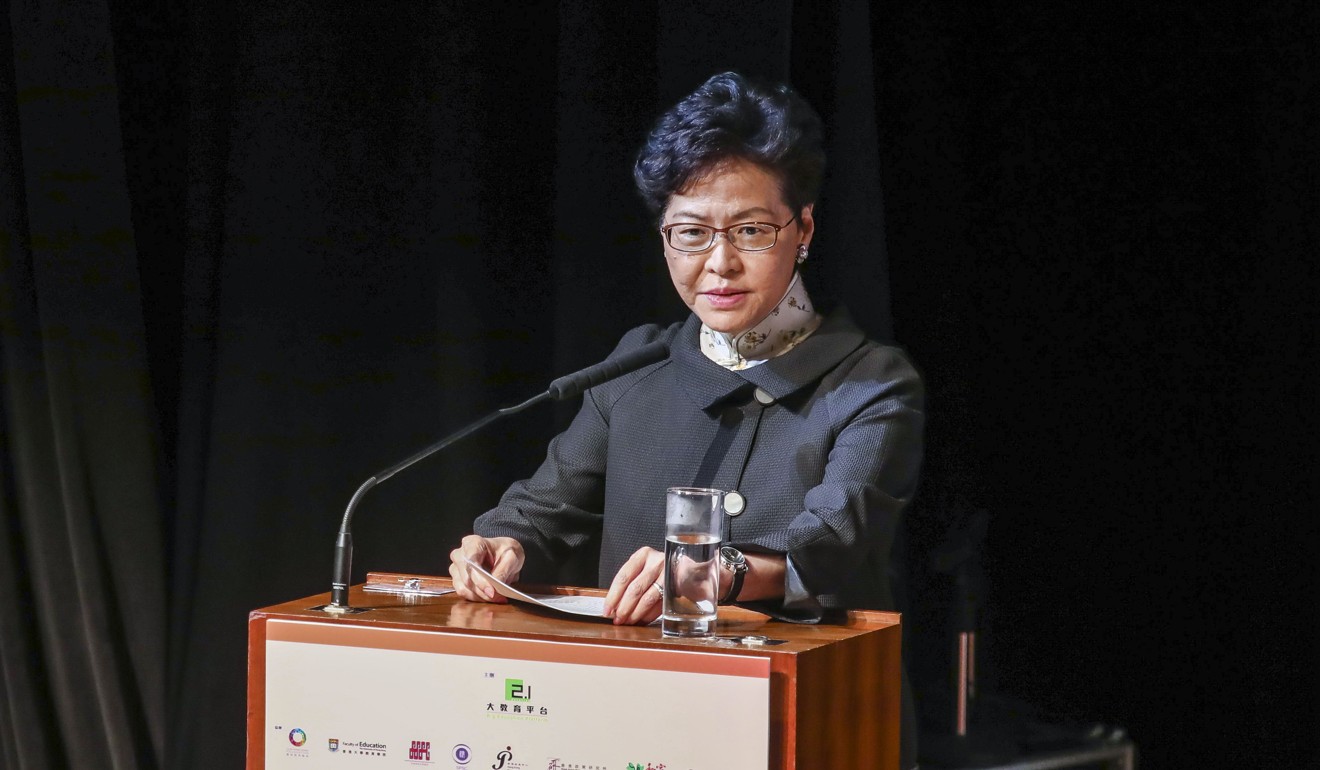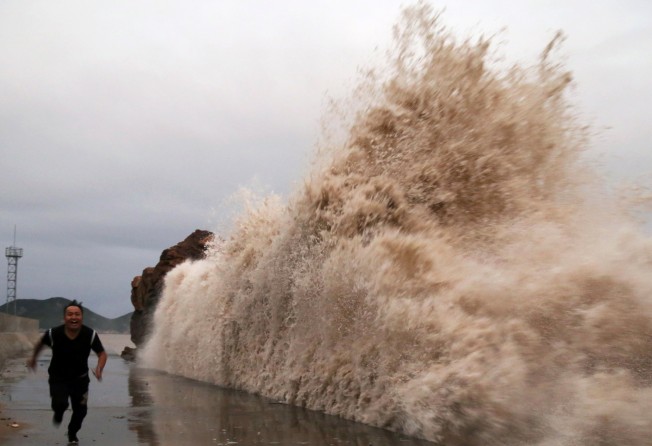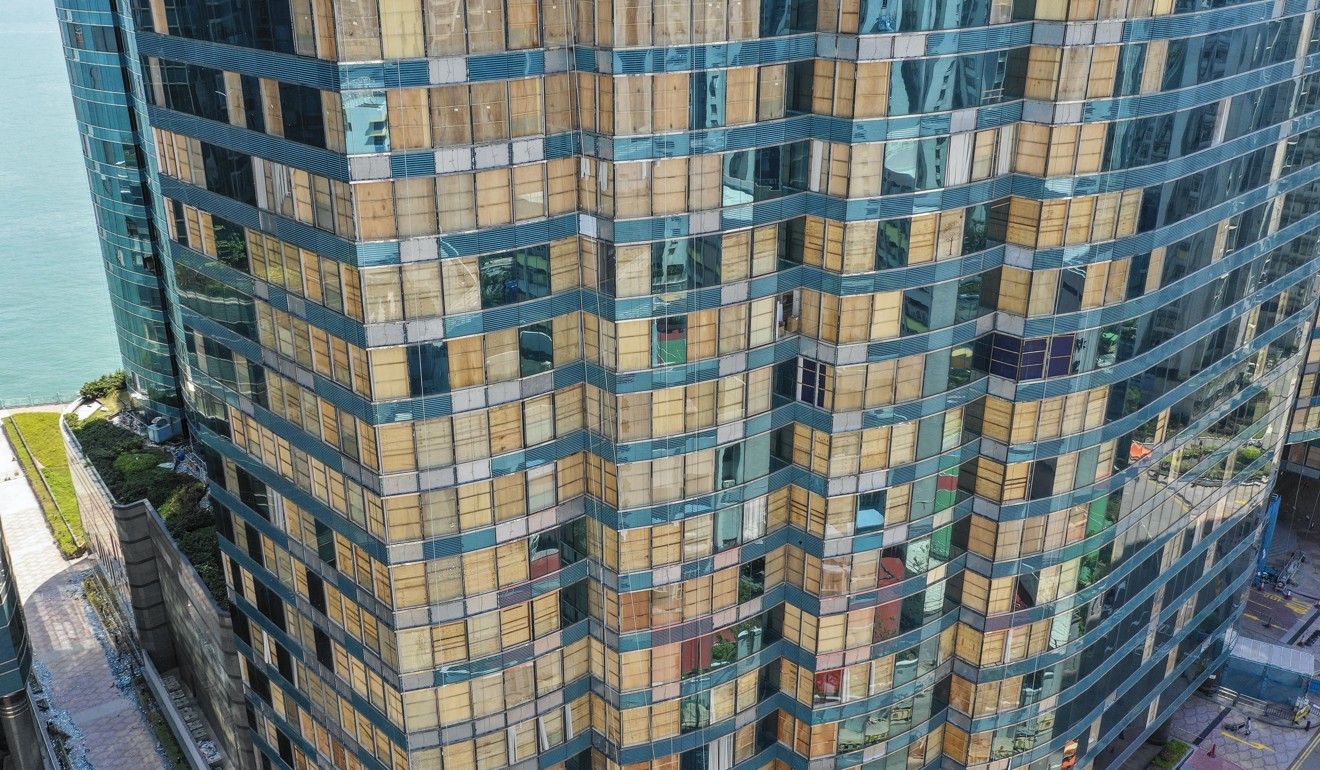
Hong Kong’s annual global warming bill is HK$22 billion, but do we have the will to pay it?
- The IPCC’s global report urging action on the environment says we need to spend US$2.38 trillion a year on ‘mitigation investment’. Hong Kong’s leader will face a difficult choice in whether to pay our share

Imagine the setting: the head of Hong Kong’s Central Policy Unit (or whatever it is called nowadays) rushes into Carrie Lam Cheng Yuet-ngor’s office after reading the most recent dire warnings from the International Panel on Climate Change (IPCC) about how global warming, still unchecked, is putting in jeopardy the lives of literally billions of people on the earth.
In the wake of Typhoon Mangkhut, with perhaps HK$10 billion (US$1.28 billion) in insured damage, he points to the IPCC scientists’ call for US$2.38 trillion a year needed globally for “mitigation investment” that would help us adapt to higher temperatures, and protect us from the severest harm.
“I’ve just been doing some back of the envelope arithmetic,” he said: “Hong Kong generates 44 million tonnes of CO2 a year, according to the Global Carbon Atlas. That’s 0.12 per cent of the global total of 36 billion tonnes generated in 2016 by human activity. That means our share of the global mitigation investment would amount to just over HK$22 billion. We should budget that – it would be money well spent, don’t you think?”
Lam would of course push back: “Tell me what this mitigation investment would achieve.”
Her advisor pauses: “Well, according to the IPCC scientists, it would keep global temperatures from rising more than 1.5 degrees from 2010 levels. Sea levels would rise 10cm less than if temperatures rise 2 degrees. If we don’t invest now, we can’t rule out, later in the century, really catastrophic warming, with Greenland’s ice cap melting, and all of our coral reefs disappearing.
“The money would be spent on getting us off fossil fuels and onto renewable energies, much improved energy efficiency, weaning us off meat.
The IPCC guys say it more scientifically: “Limiting global warming to 1.5 degrees with no or limited overshoot would require rapid and far-reaching transitions in energy, land, urban and infrastructure (including transport and buildings), and industrial systems … These systems transitions are unprecedented in terms of scale … and imply deep emissions reductions in all sectors, a wide portfolio of mitigation options and a significant upscaling of investments.”
“You know, that means health, livelihoods, food security, water supply, human security, economic growth … that kind of thing.”
Martin Rees, Britain’s astronomer royal, would chime in here, in his new book, On the Future: Prospects for humanity: “The world cannot sustain anywhere near its present population if everyone lives as profligately as better-off Americans, (but up to) 20 billion people could live sustainably with a tolerable (but ascetic) quality of life, if all adopted a vegan diet, travelled little, lived in small high-density apartments and interacted by super-internet and virtual reality.”
Scientists call this “sustainable intensification”.
Now Lam frowns: “You mean you want us to spend HK$22 billion a year on moving over to renewable energy, finding space for charging points for electric cars, carbon capture, making our apartments more energy efficient … all so that the sea level is 10cm lower? I’m already spending most of our reserves on housing.

“Tell me where the votes are. I don’t see much voter appeal in forcing our power companies to scrap their power plants and shift over to solar. More ascetic living is not going to do much for our retailers and everybody’s Sunday ‘malling’. And I don’t think vegan diets sell very well.
“You are asking me to spend HK$22 billion a year to make life harder, save Greenland’s ice cap, save a few coral reefs and fend off a few extra typhoons.
“Remember my friend Jean-Claude Juncker, president of the EU: “We all know what to do. We just don’t know how to get re-elected after we’ve done it.”
Our CPU head is not easily pushed aside: “Ah, but ma’am, what about the possible pestilences, the species losses, the millions who will lose their homes and farmland, the migration as some countries become deserts, and the loss of fish and shellfish. Abalone will be so much more expensive. So will chocolate.”
Lam, ever open to good suggestions, remains unconvinced: “I’ve got a lot on my plate with this Lantau Vision thing. This is all ‘later this century’ and would involve lots of messy consultation with lots of other countries, not to mention our comrades across the boundary. And frankly my voters are more concerned about getting a home, elderly health care, and getting the MTR fixed.
Maybe we should do a consultation on it.”
“But ma’am … the clock is ticking, and the longer we wait, the higher the cost, and the greater the danger of crossing one of those dreadful tipping points …”
Lam at this point waves him away: “I know, I know. Get me the consultation report.”
I have just worked patiently through the impossibly ponderous IPCC report. Even I, passionately concerned about the price we will pay for generating so much CO2 and clearly convinced of the ruinous impacts that are likely to befall us over the coming century, find the document so bogged down in scientific precaution that the message – and the urgency – get impossibly fogged by “global average discounted marginal abatement costs.”

I know it is alarming to learn that “of 105,000 species studied, 6 per cent of insects, 8 per cent of plants and 4 per cent of vertebrates are projected to lose over half of their climatically determined geographic range for global warming of 1.5°C, compared with 18 per cent of insects, 16 per cent of plants and 8 per cent of vertebrates for global warming of 2°C.” But heaven knows how I should respond politically.
No wonder so many politicians are so torpid. No wonder Donald Trump casts the issue aside. No wonder Australia, as the world’s biggest coal exporter, insists there is no need for haste. For politicians worldwide, the immediate trumps the long term, and the parochial trumps the global.
The earth is 45 million centuries old, but this century is the first in which one species – ours – can determine the biosphere’s fate. We can be technological optimists about our ability to navigate the challenges, but we need to offer politicians something more relevant and easier to appreciate than a mean global warming. It’s hard not to be a political pessimist.
David Dodwell researches and writes about global, regional and Hong Kong
challenges from a Hong Kong point of view